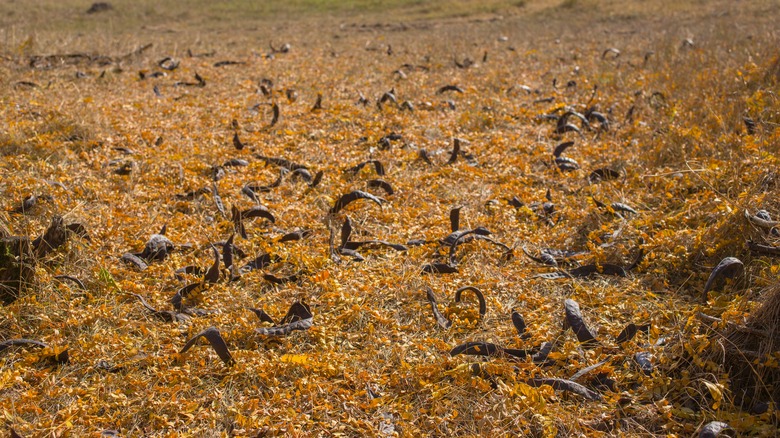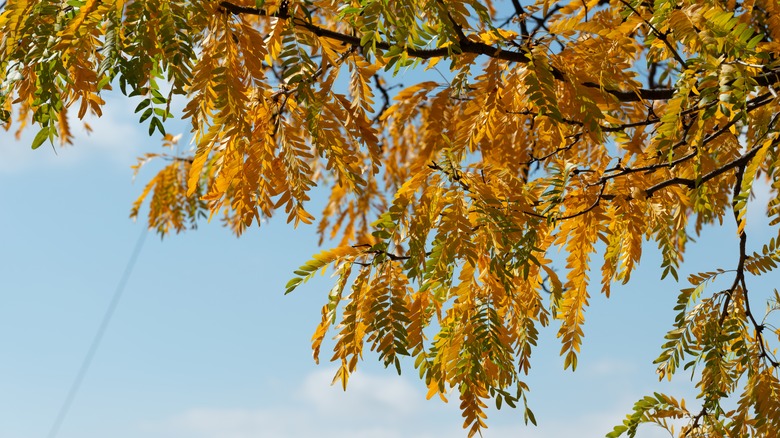The Beautiful Fast-Growing Tree That Can Wreak Havoc On Your Landscape
Fast-growing trees can be a great way to add life and color to your yard. Unfortunately, the same traits that allow trees to quickly grow and mature, often can also cause them to be too aggressive and weedy for many locations. This is the case with the honey locust (Gleditsia triacanthos), a gorgeous but often problematic North American tree.
Despite being native to parts of central and eastern North America, honey locust isn't always recommended for landscapes, even within its native range. This is due not only to the thorns that most cultivars have, but also to the messy fruits and seed pods that the trees drop. These seeds can, of course, grow into even more honey locust trees. Considering most honey locusts can reach heights and widths of 80 feet, even a single tree can easily become too large for many yards, so a whole forest of honey locust seedlings is the last thing most homeowners want.
Growing honey locust responsibly
For all their downsides, there are plenty of good reasons to consider growing honey locust trees if you live within their native range and have enough space. Not only do their leaves have beautiful green and gold colors, but the tree also boasts fragrant flowers that are beneficial for many pollinators. Additionally, honey locust is an affordable tree that can be bought without breaking the bank. Hardy in zones 3 through 8, honey locusts require full sun to grow well and tend to struggle with high heat and humidity. Once established, honey locusts can be quite drought-tolerant trees and can also handle pollution. These trees can even stand up to being grown near black walnut trees, a location that can be a struggle for many other plants.
If you do opt to add a honey locust to your landscape, consider going with a thornless cultivar like the 'Shademaster' (Gleditsia triacanthos var. inermis 'Shademaster'). In addition to being thornless, 'Shademaster' is also largely seedless, meaning few, if any, messy pods to clean up and no honey locust seedlings to deal with. Another cultivar to consider, especially if you have limited space, is the 'Impcole' or 'Imperial' cultivar. It, too, is thornless and rarely grows past 40 feet tall.

